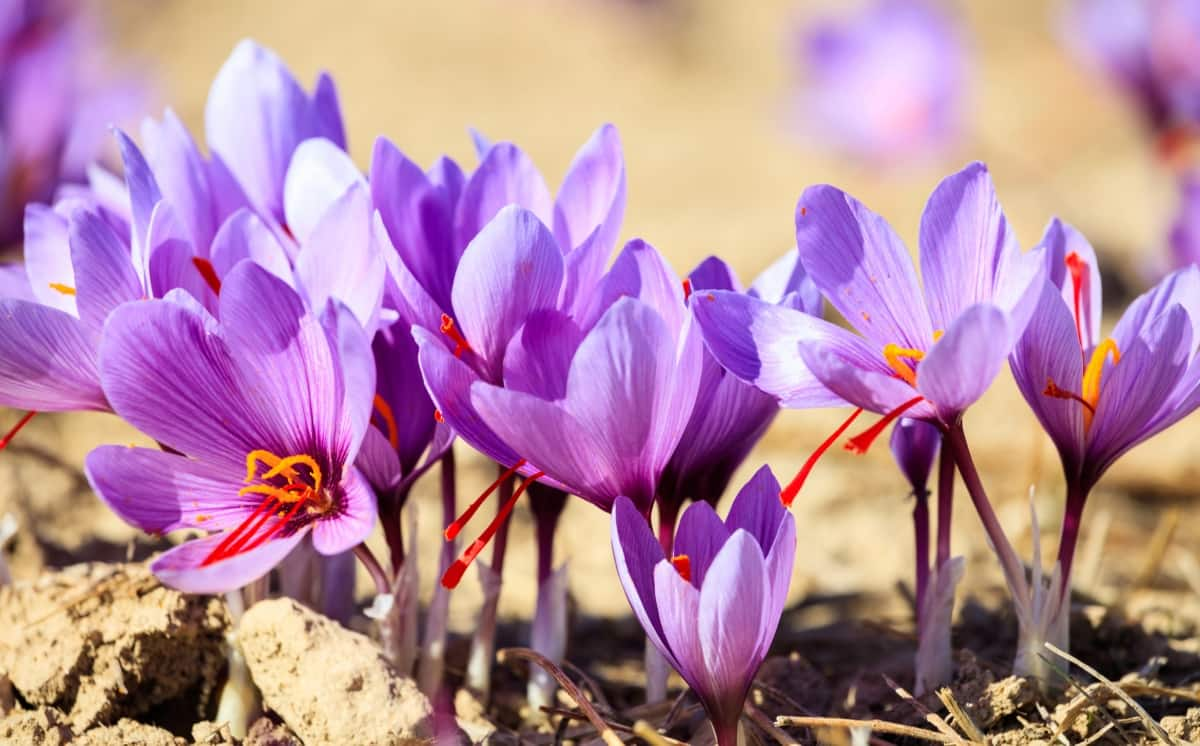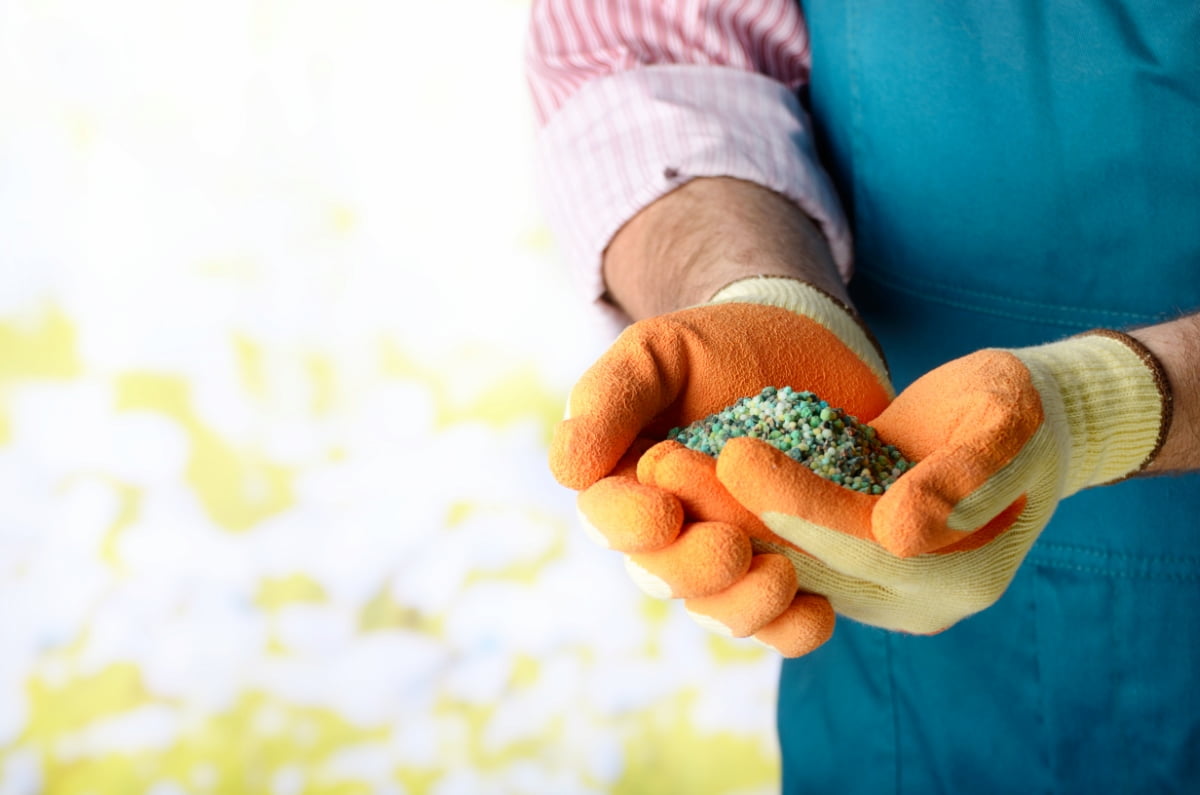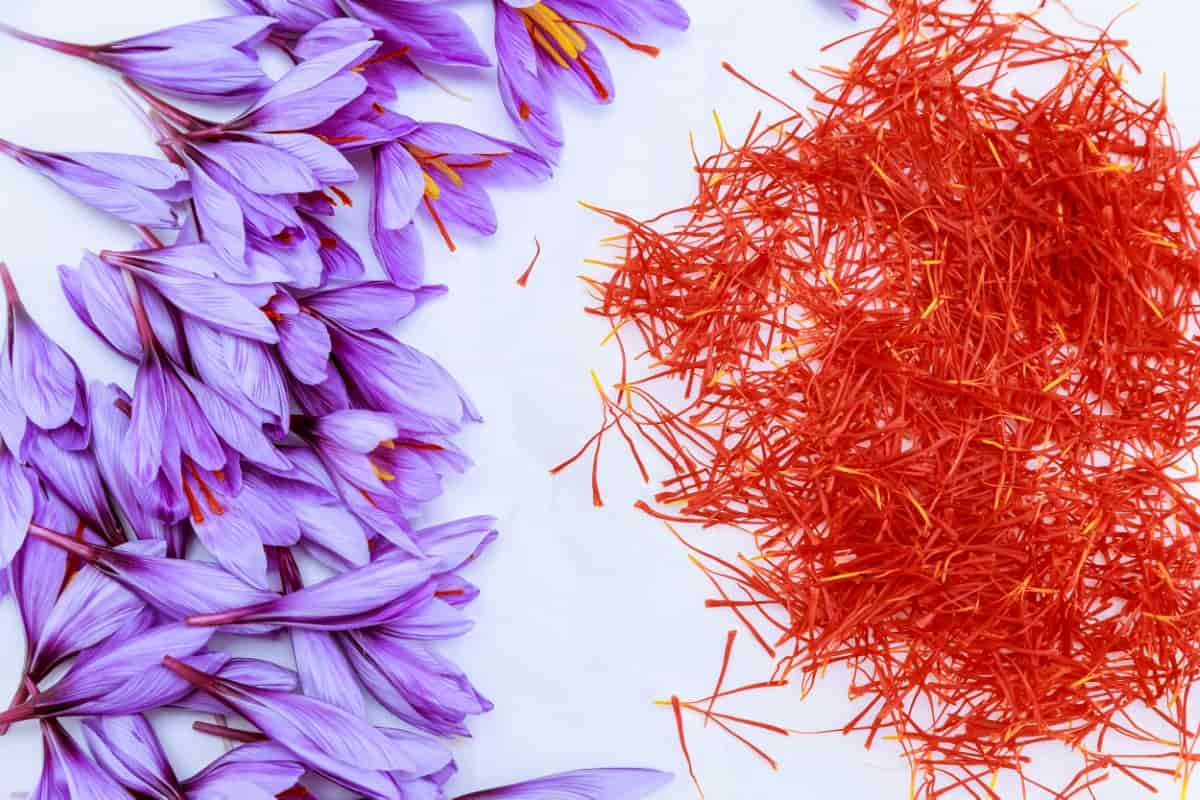Fertilizers provide essential nutrients that are important for healthy plant development and increased yields. To determine the best fertilizer for your Saffron crop, consider factors such as soil composition and pH levels. Conducting a soil test can help find any deficiencies or imbalances in vital nutrients.

Best Fertilizers for Saffron
Fertilizer Recommendations
It’s essential to understand the nutrient requirements of this delicate crop. Saffron thrives when provided with a balanced combination of macronutrients like nitrogen (N), phosphorus (P), and potassium (K). Choosing the right type of fertilizer is crucial for optimal growth and yield. To determine the best fertilizer for your Saffron crop, consider conducting a soil test that measures pH levels and nutrient content. This will help you tailor your fertilization plan according to specific deficiencies or imbalances present in your soil.
The Importance of Fertilizing
Fertilizing Saffron is a crucial step in ensuring the healthy growth and abundant yield of this precious spice. Saffron plants have specific nutrient requirements that must be met to maximize their potential. Fermenting Saffron is important because it helps replenish essential nutrients in the soil.
These nutrients are necessary for various metabolic processes within the plant, such as photosynthesis and flower formation. Furthermore, proper fertilization promotes stronger root development in Saffron plants. This not only increases their ability to absorb water and nutrients from the soil but also improves their resistance against diseases and pests.
Nutrient Requirements
Saffron plants have specific needs when it comes to nutrients. The three primary macronutrients required are nitrogen (N), phosphorus (P), and potassium (K). Nitrogen promotes vegetative growth, while phosphorus aids in root development and flowering. Potassium enhances overall plant health and increases resistance to stress.
In addition to these macronutrients, Saffron also requires secondary macronutrients like calcium (Ca), magnesium (Mg), and sulfur (S) in smaller quantities. These elements play vital roles in various physiological processes within the plant. Micronutrients such as manganese (Mn), zinc (Zn), copper (Cu), iron (Fe), molybdenum (Mo), and boron(B)are also essential for Saffron cultivation.
Types of Fertilizers
Nitrogen-based Fertilizers: Nitrogen is an essential nutrient for plant growth, and nitrogen-based fertilizers provide a readily available source of this important element. These fertilizers can help promote vigorous vegetative growth in Saffron plants.
Phosphorus-based Fertilizers: Phosphorus plays a key role in promoting flowering and fruiting in plants. Using phosphorus-rich fertilizers can enhance flower production and ultimately increase Saffron yields.
Potassium-based Fertilizers: Potassium is vital for overall plant health and helps improve resistance to diseases and environmental stressors. Applying potassium-rich fertilizers can contribute to stronger Saffron plants that are equipped to withstand adverse conditions.
Organic Fertilizers: Organic fertilizers derived from natural sources such as compost or animal manure offer several advantages for Saffron cultivation.
Inorganic Fertilizers: Inorganic or synthetic fertilizers are manufactured chemically by combining different elements into specific ratios suitable for plant nutrition.
In case you missed it: Pest Management in Saffron Farming: Cultural, Biological, IPM, and Chemical Control

Organic vs Inorganic Fertilizers
Organic fertilizers are mainly derived from natural sources such as compost, manure, and plant materials. They nourish the soil slowly and steadily, providing a continuous supply of nutrients to the Saffron plants. On the other hand, inorganic fertilizers are synthetically made and give an instant boost of nutrients. The choice between organic and inorganic fertilizers largely depends on individual preferences and farming practices. Some farmers prefer organic options for their sustainability benefits and long-term soil health improvements.
Benefits of Using Organic Fertilizers
The main benefit of using organic fertilizers is their ability to improve soil fertility over time. Organic fertilizers enhance soil moisture retention capabilities. They improve water-holding capacity by increasing the presence of organic matter in the soil. Another advantage is that organic fertilizers contribute to long-term sustainability and environmental stewardship. By avoiding harsh chemicals and synthetic additives commonly found in conventional products, farmers who use organic fertilizers prioritize ecological balance while supporting biodiversity on their farms.
Choose the Best Fertilizer
You want to ensure that the fertilizer provides the necessary nutrients that Saffron requires for optimal growth and flower production. Saffron plants require a balance of nitrogen, phosphorus, and potassium (NPK), along with trace elements like iron and zinc. A balanced NPK ratio of 10-10-10 or 14-14-14 is generally recommended for Saffron cultivation.
In addition to nutrient ratios, it’s crucial to choose a fertilizer that is slow-release or provides gradual nutrient release over time. This will help prevent the burning of the delicate Saffron plants while ensuring they receive a steady nutrient supply throughout their growing season.
Fertilizer Application Timing
The main time to fertilize Saffron is in early spring when the flowers are forming, at which right fertilizer time will encourage better blooms. Early spring is a critical period for Saffron cultivation, as this is when the plants start to develop their vibrant purple flowers. To ensure optimal growth and maximize flower production, it is essential to apply fertilizer during this specific timeframe. By providing nutrients at this stage, you are giving your Saffron plants the boost they need to produce abundant and high-quality blooms.
Fertilizer Dosage and Frequency
Applying too little fertilizer can result in nutrient deficiencies, while excessive amounts can lead to soil nutrient imbalances and environmental pollution. The nutrient dosage will depend on many factors, such as soil fertility levels, plant age, and crop stage. In terms of frequency, it’s generally recommended to apply fertilizer in small doses throughout the growing season rather than all at once.
In case you missed it: Best Practices to Grow Saffron Organically: A Guide to Organic Saffron Farming and Certification Process

This helps ensure a steady supply of nutrients for continuous plant growth without causing stress or nutrient overload. A general guideline is to use approximately 10-15 kilograms of well-decomposed organic matter per square meter of soil before planting.
Common Mistakes to Avoid
Over-fertilization: Applying excessive fertilizer can harm your Saffron plants. It can lead to nutrient imbalances and may even burn the roots, resulting in stunted growth or death of the plant.
Under-fertilization: On the other hand, neglecting to provide nutrients can limit the growth and development of your Saffron crop. This can result in lower yields and poorer-quality Saffron threads.
Incorrect timing: Failing to apply fertilizers at the right time can also impact Saffron production. The main time for fertilizing is during early spring when flowers are forming. Applying fertilizer too late or too early may not be as effective in promoting better blooms.
Neglecting soil pH levels: Saffron thrives best in well-drained soils with an acidic pH level ranging from 6 to 7.5. Ignoring soil pH levels can affect nutrient availability and uptake by the plants.
In case you missed it: Frequently Asked Questions About Saffron Farming

Conclusion
By providing a balanced mix of nutrients, fertilizers promote vigorous root development, leading to healthier plants with increased resistance to diseases and pests. The use of fertilizers helps to optimize soil fertility, enabling Saffron plants to absorb nutrients more efficiently. To effectively manage fertilizer application for Saffron, it’s essential to understand the specific nutrient requirements of these delicate plants.
- Feed Your Flock for Less: Top 10 Tips to Save on Chicken Feed
- Ultimate Guide to Ossabaw Island Hog: Breeding, Raising, Diet, and Care
- Hatching Answers: The Top 10 Reasons Your Chickens Aren’t Laying Eggs
- Eggs and Economics: Breaking Down the Cost of Raising Backyard Chickens
- Defend Your Greens: Proven Methods to Keep Iguanas Out of Your Garden
- Ultimate Guide to Cinnamon Queen Chicken: A Comprehensive Guide for Beginners
- Ultimate Guide to California Tan Chicken: Breeding, Raising, Diet, Egg-Production and Care
- Ultimate Guide to Marsh Daisy Chicken: Breeding, Raising, Diet, and Care
- 10 Types of Chicken Farming Businesses You Can Start for Profits